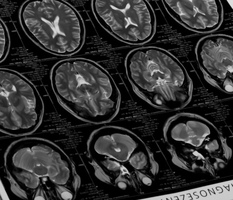Professional Definitions of Clinical Neuropsychology
페이지 정보
작성자 관리자 작성일08-04-27 10:43 조회33,169회 댓글5건관련링크
본문

|
The American Psychological Association (APA) defined the practice of Clinical Neuropsychology in 1996, and recently re-approved the definition in 2003. Although another revision is in the works, the 2003 version currently states: "Clinical neuropsychology is a specialty that applied principles of assessment and intervention based upon the scientific study of human behavior as it relates to normal and abnormal functioning of the central nervous system. The specialty is dedicated to enhancing the understanding of brain-behavior relationships and the application of such knowledge to human problems." - APA Council of Representatives (1996, re-approved 2003) |
|
In 2001, the National Academy of Neuropsychology expanded on the criteria put forth by APA Division 40 to define the role and duties of a clinical neuropsychologist: "A clinical neuropsychologist is a professional within the field of psychology with special expertise in the applied science of brain-behavior relationships. Clinical neuropsychologists use this knowledge in the assessment, diagnosis, treatment, and/or rehabilitation of patients across the lifespan with neurological, medical, neurodevelopmental and psychiatric conditions, as well as other cognitive and learning disorders. The clinical neuropsychologist uses psychological, neurological, cognitive, behavioral, and physiological principles, techniques and tests to evaluate patients’ neurocognitive, behavioral, and emotional strengths and weaknesses and their relationship to normal and abnormal central nervous system functioning. The clinical neuropsychologist uses this information and information provided by other medical/healthcare providers to identify and diagnose neurobehavioral disorders, and plan and implement intervention strategies. The specialty of clinical neuropsychology is recognized by the American Psychological Association and the Canadian Psychological Association. They are often board certified akin to medical specialties. Clinical neuropsychologists are considered to be independent practitioners (healthcare providers) of both clinical neuropsychology and psychology." - NAN Definition of a Clinical Neuropsychologist (2001) |
The Houston Guidelines is a document compiled at the Houston Conference in 1997 to outline aspirational criteria for training in clinical neuropsychology. All students of neuropsychology should familiarize themselves with this document. The guidelines were agreed upon by a select group of 37 clinical neuropsychologists and five delegates from neuropsychological organizations including: APA Division 40, the National Academy of Neuropsychology, the American Board of Clinical Neuropsychology, the American Academy of Clinical Neuropsychology, and the Association of Postdoctoral Programs in Clinical Neuropsychology.
Several training criteria must be met for practice as a clinical neuropsychologist:
1) A doctoral degree in psychology from an accredited university with core psychology, clinical psychology, brain-behavior, and clinical neuropsychology coursework in addition to obtaining in-depth training in assessment, treatment, consultation, research, and teaching/supervision. 2) An internship, or its equivalent, in a clinically relevant area of professional psychology that is also approved by the American or Canadian psychological associations. 3) The equivalent of two (fulltime) years of experience and specialized training, at least one of which is at the post-doctoral level, in the study and practice of clinical neuropsychology and related neurosciences. These two years include supervision by a clinical neuropsychologist. Finally, 4) A license in the home state or province to independently practice psychology and/or clinical neuropsychology.
Several training criteria must be met for practice as a clinical neuropsychologist:
1) A doctoral degree in psychology from an accredited university with core psychology, clinical psychology, brain-behavior, and clinical neuropsychology coursework in addition to obtaining in-depth training in assessment, treatment, consultation, research, and teaching/supervision. 2) An internship, or its equivalent, in a clinically relevant area of professional psychology that is also approved by the American or Canadian psychological associations. 3) The equivalent of two (fulltime) years of experience and specialized training, at least one of which is at the post-doctoral level, in the study and practice of clinical neuropsychology and related neurosciences. These two years include supervision by a clinical neuropsychologist. Finally, 4) A license in the home state or province to independently practice psychology and/or clinical neuropsychology.
댓글목록
등록된 댓글이 없습니다.



